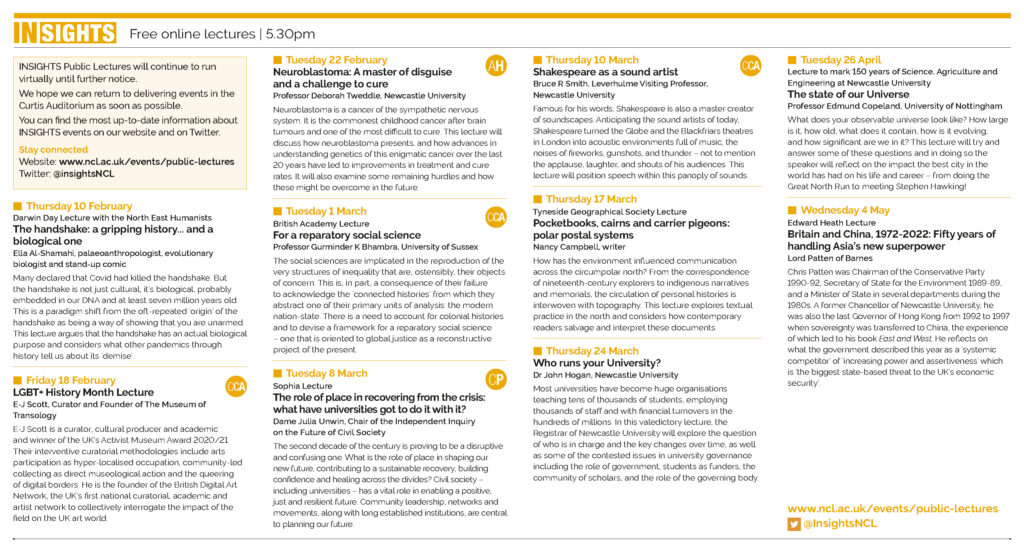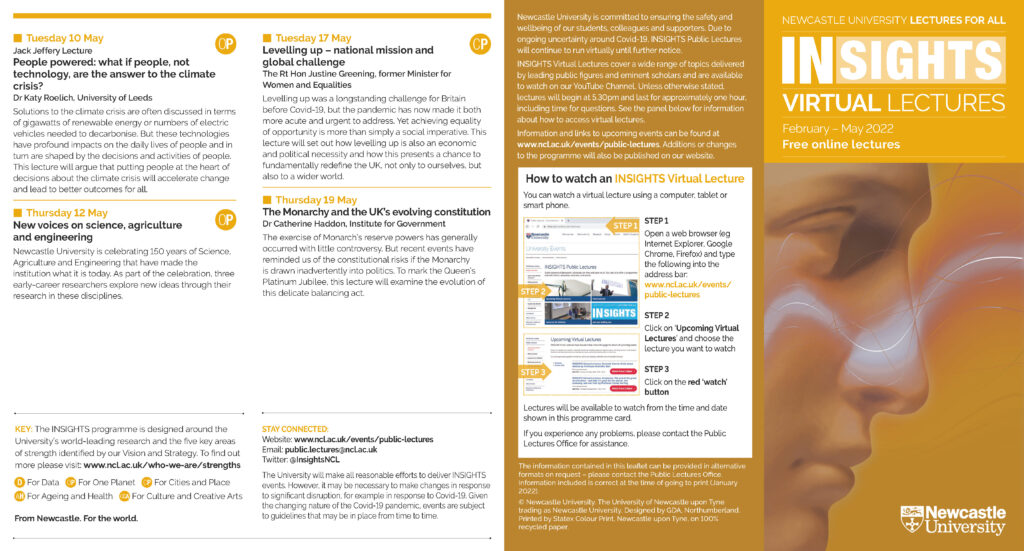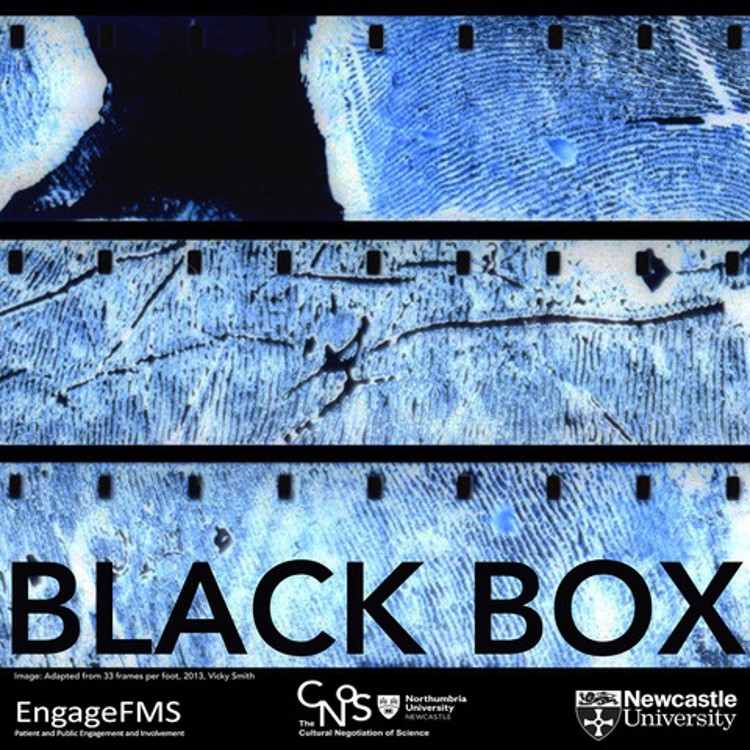We’re excited to let you know that the schedule for the INSIGHTS Virtual Lectures organised by Newcastle University has been released.
Details of the lectures and printable booklet below:



Our Black Box cinema project will be visiting the Summerhall Exhibition as part of the Edinburgh Science Festival in April this year!
Opening the door on the inner workings of scientific research, BLACK BOX is a curatorial pop-up cinema project, founded by artist, Louise Mackenzie and scientist, Kasia Pirog. Curating film inspired by and expanding upon scientific themes, BLACK BOX showcases works by artists and researchers involved in a creative and critical engagement with science. For Edinburgh Science Festival 2022, BLACK BOX presents KINSHIP – a programme of short films that reflect upon the many evolving relationships that begin with the body. Who or what connects us, who is host and who is guest?
BLACK BOX is supported by the Cultural Negotiation of Science, Northumbria University and the Biosciences Institute, Newcastle University.
We are very excited, please watch this space for more details. Meanwhile, if you’d like to know more about the Black Box project, please click here: https://blogs.ncl.ac.uk/blackbox/
If you head to the Experiment Zone (https://www.life.org.uk/events/experiment-zone) at Life, you will be able to spot some of our scientists explaining how they use DNA extraction in their work. Next time you visit, look for the panels with these friendly faces!




Please contact us if you’d like to know more, we love talking about science!
Soapbox Science is coming to Newcastle again!

From the organisers: “Soapbox Science is a novel public outreach platform for promoting women and non-binary scientists and the science they do. Our events transform public areas into an arena for public learning and scientific debate; they follow the format of London Hyde Park’s Speaker’s Corner, which is historically an arena for public debate. With Soapbox Science, we want to make sure that everyone has the opportunity to enjoy, learn from, heckle, question, probe, interact with and be inspired by some of our leading scientists. No middle man, no PowerPoint slide, no amphitheatre – just remarkable women and non-binary scientists who are there to amaze you with their latest discoveries, and to answer the science questions you have been burning to ask. Look out for bat simulators, interactive experiments or giant pictures of volcanoes. Or simply hear them talk about what fascinates them, and why they think they have the most fantastic job in the world!”
If you would like to participate in the event this year, either as a presenter or a volunteer helping out behind the scenes, please click here to register your interest.

We had a very enjoyable first meeting. Thank you very much to everyone for volunteering their time to work with us, it was great to meet you and we are looking forward to working with you over the next 3 years, developing outreach and educational materials and sharing our research journey.
If you are interested in participating but couldn’t attend today, the recording of the meeting is available to watch and you are more than welcome to joi us at our next session in June. If you’d like to watch the video or join the Working Group, please email katarzyna.pirog@ncl.ac.uk
Thank you.
We are looking for members of the public who would like to be involved in a Working Group, and take part in lab meetings, provide a fresh perspective on the work performed in the laboratory, have an active voice in the decisions we take as to the direction of our research and help us deliver their teaching and public engagement activities related to musculoskeletal health and ageing that stem from our work.
For more details, please click here or email katarzyna.pirog@ncl.ac.uk
Thank you.


A big thank you to all the presenters and attendees for making Genetics Matters a great event this year!
Our guest list is growing and we now have an exciting programme to share with you:

We can’t wait!
Celebrating rare disease research, the strength and courage of the rare disease community and patient involvement in science, and talking about genetic research in Newcastle and the importance of raising awareness of rare diseases and the patient journey, it is promising to be a great event.
If you haven’t booked your free place yet, please do so using the links below:

See you on Satuday!
T-12 to Genetics Matters, our annual event where you can find out about rare disease and genetic research in Newcastle, show your support for rare disease patients, perform simple fun experiments and chat to Newcastle scientists over tea and cake.

To book your free place, please click here.
Save the date, our popular event is back on the 29th of February for one fun afternoon filled with science and cake.
This year we are meeting at the wonderful Great Hall at the Discovery Museum in Newcastle and will be talking about cancer gene therapy, male infertility, the 100,000 genomes project, mitochondrial donations, CRISPR/Cas9 gene editing, drug repurposing and many more hot medical research topics which may have caught your eye in the news. The event is FREE but please book to secure a place by clicking here: https://forms.ncl.ac.uk/view.php?id=6972326

Please spread the news amongst your friends and colleagues, the more the merrier!